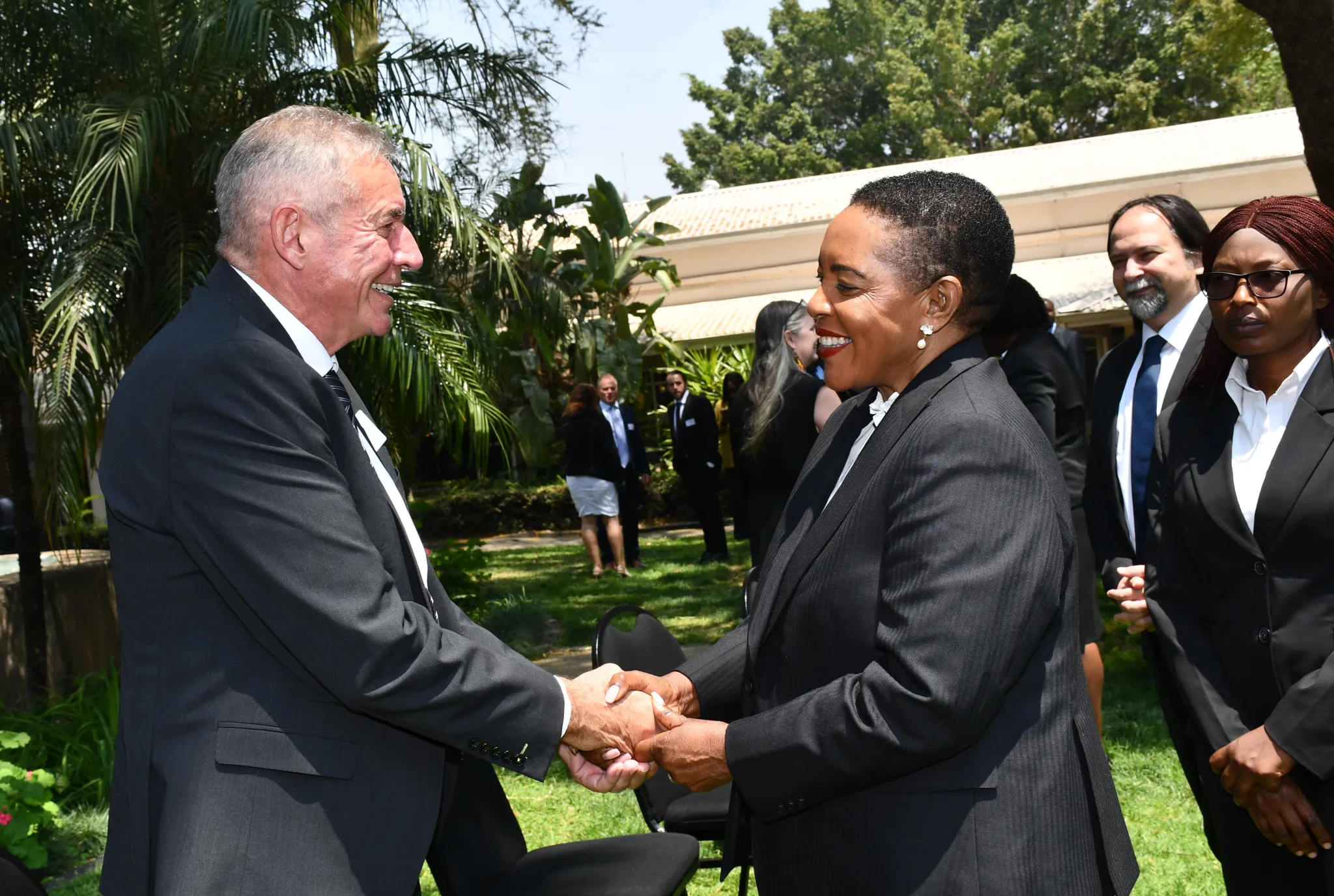Cooperation in Action: Four Lessons from the First Inter-Parliamentary Strategic Planning Workshop in Zambia

For the first time, senior parliamentary staff from across Africa and beyond convened in Lusaka, Zambia, for a high-level workshop on Strategic Planning for Parliaments. This groundbreaking event was hosted by the National Assembly of Zambia (NAZ) in partnership with Inter Pares, with financial support from the European Union’s WYDE initiative.
The workshop gathered parliamentary clerks, secretaries general, and parliamentary senior staff from eleven parliaments across Africa, Europe, and North America — including Botswana, Canada, Denmark, Ghana, Ireland, Kenya, Namibia, Sierra Leone, South Africa, and Sweden.
The event was officially opened by the Speaker of the National Assembly of Zambia, Rt. Hon. Nelly B. K. Mutti, who underscored the urgency of strategic planning in today’s context of rapid technological change, economic pressures, and rising citizen expectations.
"In an era where Parliaments face unprecedented challenges from fast-evolving technologies and rising citizen expectations to economic pressures and climate shocks, clarity of vision and strategic direction are more critical than ever” — said Rt. Hon. Nelly B.K. Mutti.
This was not just another professional gathering. It was the first event of its kind to openly discuss the real-world inner workings of institutional strategic planning. Read on for the four key lessons that will form the basis of the new global handbook.
Lesson One: A Space for Honest Dialogue
The workshop adopted an innovative fishbowl format, immediately establishing an atmosphere of openness and genuine peer exchange. This format blurred the lines between “speaker” and “audience,” allowing any participant to join the inner circle to share candid experiences or pose direct questions.
“In a fishbowl, everyone gets a chance to speak, and the distinction between panelists and audience disappears.” — Isabella Zandonadi, Inter Pares facilitator
For the senior staff who manage strategic frameworks daily, this was a refreshing opportunity to discuss the real challenges that often hide behind polished reports: budget constraints, bureaucratic hurdles, and the struggle for political buy-in.
Parliaments compared realities, from the necessity of securing external funding for implementation to the internal battles with bureaucracy even with dedicated budgets. This generated not just information-sharing, but genuine, peer-to-peer problem-solving, as colleagues offered ideas drawn from their own institutional trials.
Lesson Two: Why a Strategic Plan Matters
Much of the discussion centered on one key idea: a parliament’s strategic plan is more than a technical document; it’s a living roadmap that fundamentally defines where the institution is, where it wants to go, and how it will get there.
“The implementation part of a strategic plan is a really good way of demonstrating how far we’ve come, it’s how we build institutional memory and knowledge, how we bring our values to life.” — Dr. Diego Castillo Goncalves, Parliamentary Expert, Parliament of Ireland
The sessions revealed that internal buy-in, from both staff and Members of Parliament, is one of the most critical factors for success. A plan functions only when everyone, from the Speaker to the newest clerk, understands and commits to the shared mission, vision, and values.
Participants shared practical methods for integrating the plan into daily processes, budgeting cycles, and communication systems, ensuring it guides day-to-day decision-making, not just long-term goals. Crucially, parliaments must continuously inform and engage all staff, not just the planning officers.
Lesson Three: Strengthening Democratic Governance
At its core, strategic planning is an act of governance. Discussions emphasized how principles like accountability, transparency, and efficiency are actively reinforced through robust Monitoring, Evaluation, and Learning (MEL) systems.
By continuously tracking progress, MEL allows parliaments to course-correct and ensure strategic goals remain aligned with democratic values. Participants shared concrete tools, such as “traffic-light dashboards” for objective tracking, mid-term reviews for recalibration, and annual retreats involving both staff and MPs.
“We want a sustainable democracy, a representative democracy. So the strategy has to be formulated around the core values in our constitution." — Torben Skovgaard, Deputy Secretary General, Parliament of Denmark
These mechanisms turn the strategic plan into an instrument of accountability — not only within the institution but also to citizens.
Lesson Four: The Role of the National Assembly of Zambia (NAZ)
The National Assembly of Zambia (NAZ) served as both gracious host and a valuable case study. The event coincided with NAZ's own mid-term review, offering an invaluable learning opportunity for its staff. Through open dialogue, Zambian participants were able to deepen their understanding of their internal processes, challenges, and opportunities by comparing notes directly with peers.
“Our colleagues here have worked tirelessly… their organization and commitment made this event what it was.” — Jonathan Murphy, Head of Programs, Inter Pares
The event also showcased NAZ’s remarkable organization and hospitality, setting a gold standard for future exchanges of this kind. The partnership's success is due to the value of genuine, sustained cooperation, where mutual learning becomes a shared achievement rather than a one-time exercise. The Strategic Planning High-Level Workshop in Lusaka was a true milestone in inter-parliamentary cooperation, proving that when democratic institutions learn together, they grow stronger together.
The Due Out: The Global Handbook on Parliamentary Strategic Planning
The ultimate deliverable from this historic workshop is the forthcoming Handbook on Parliamentary Strategic Planning, which will synthesize these four lessons and serve as a practical, concise global reference tool, helping parliaments worldwide strengthen their institutional resilience and effectiveness.




